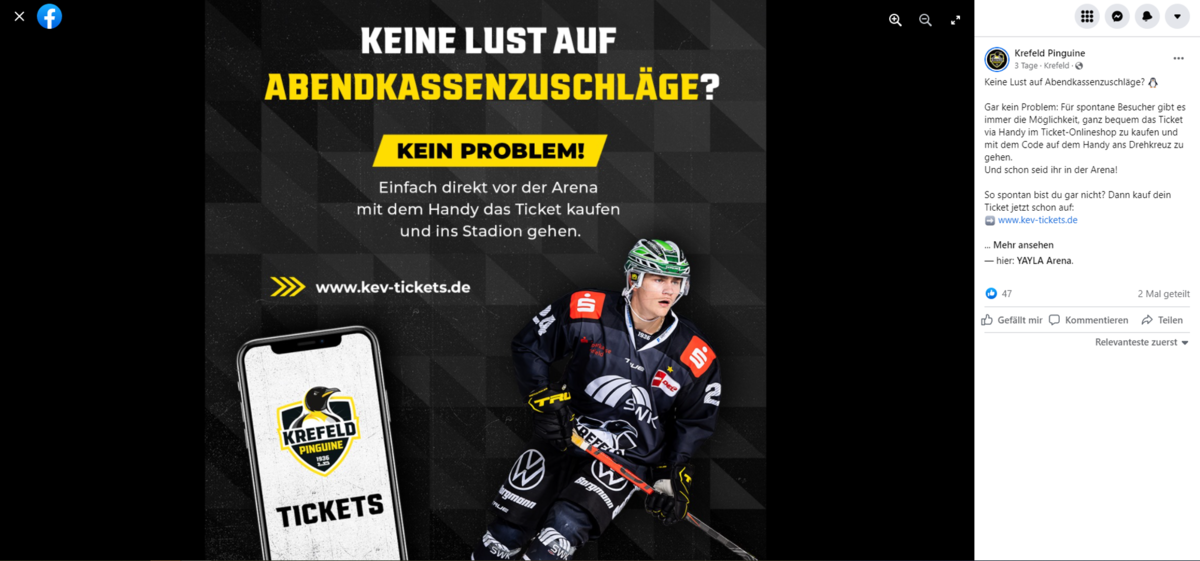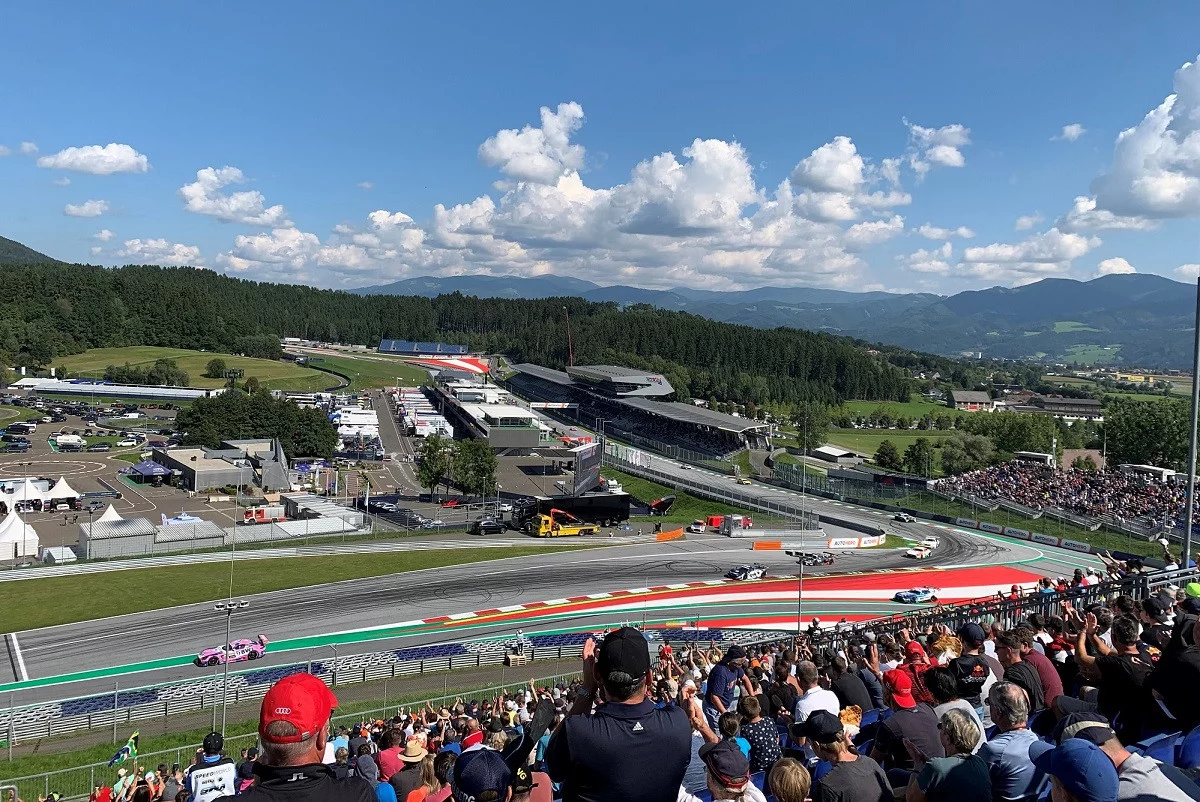Deep Dive - Five Lessons from the Re-Start of the Sport
24 November 2021
Without question, the last 20 months have been very challenging for all of us and still are - there have been days when we have run from one solution-seeking conversation to the next. Nothing of what was taken for granted two years ago is still set. Ghost games, spacing, personalisation, 2G ... we all know it.
At the start of the re-launch in June 2021, our 12 consultants worked with our more than 150 partners from a wide range of sports, from national football leagues to ice hockey top leagues and from tennis tournaments to one-day athletics meetings, to come up with individual solutions. Our modular SaaS Product Suite, which is easy to integrate and at home in the cloud, has paid off in the development of these solutions.
We have gathered a lot of insights over the last few months, which we have summarised below in five key areas and would like to share with you:
1. digitisation of guest allotments and VIP tickets
Tickets for visiting fans in 2019: Club A sends the number of specified visiting tickets to Club B. Club B sells the tickets to fans. If not all tickets are sold, club B sends the remaining tickets back to club A. Club A cancels the unsold tickets.
Due to contact tracking and personalised tickets, anonymous ticket sales are (partly) not possible. Therefore, the clubs have developed alternative, digital distribution channels.
Option 1: Promotion codes in the guest ticket shop of the home club
One option is to create a promotion code for the visiting club. The fans of the visiting club use the same seating plan as the home fans to book and personalise their seats directly. In most cases, a "guest ticket online shop" is configured - only guest tickets can be purchased in this online shop and the seats can only be selected if the fan knows the respective promotion code. The codes can be configured so that each code can only be redeemed x times in order to ensure the fairest possible distribution of available tickets.
Variant 2: Digital exchange of stadium configuration and sale in own ticket online shop
The "Gladbach-Bielefeld" model was born, as the name suggests, for the first-round match between Borussia Mönchengladbach and Arminia Bielefeld. In the run-up to the pre-sale, the club's managers exchanged the stadium configurations so that Bielefeld's visiting fans could buy their away tickets in their usual ticket online shop with seat-specific information. The advantage for fans is that they can log into the online shop with their usual login details, buy their ticket and it will be delivered to them digitally. This procedure is now used by almost all clubs in the Bundesliga, the requirement being that both clubs use EVENTIM.Tixx as their software.
All guest shop solutions have in common that the tickets are booked by the guest fans in the seating plan in a personalised way and then sent as a digital ticket via e-mail.
2. intensification of fan communication
We have noticed a significant increase in the use of our Tixx-CRM system and the connected campaign management CleverReach. In the past 30 days, an average of eight mailings per month were sent per partner using the CRM and CleverReach products. In addition to match day mailings, newsletters and promotional mailings are increasingly being sent to (re)strengthen fan loyalty.
In the past, information mailings before a match day were rather optional, somehow all fans were in their seats in time for kick-off. Currently, the situation is different - even we, as industry experts and regular live spectators at sporting events, have to look twice when we attend an event.
- When am I allowed to enter the venue?
- What are the rules regarding health status?
- Do I need a special check-in app?
- What about the obligation to wear a mask?
We note that the urgency of match day mailings has been recognised. Ticket buyers will be contacted again shortly before the event and informed about the conditions. Also, in the event that conditions have changed between the time of ticket purchase and the day of the event, it is important to be able to inform the fans concerned in an uncomplicated manner and at short notice. With the help of the customer and ticket data from the CRM, segments can be easily created and corresponding mailings sent.
3. online advance booking and QR codes instead of box office sales
The shift to online ticket booking - driven by the pandemic - is happening much faster than was assumed two years ago. Whereas two years ago clubs were afraid of overwhelming especially long-time fans as well as the older audience with a switch to "online only", requirements such as keeping distances, avoiding physical contact and the obligation to personalise tickets have led to an online jolt.
And even those who come to the venue spontaneously and without a ticket are now persuaded to buy their tickets online by posters with a QR code linking to the ticket shop.
The advantages for clubs and organisers are obvious: on the one hand, they can plan better by buying tickets early and on the other hand, they can (partly) save on box office staff.

4. increased relevance of online marketing tools
Now that the questions before the start of the season have gradually dissipated and a certain routine has set in, we have been exchanging ideas with our partners more frequently than ever in recent weeks and months about online marketing, social media advertising, the evaluation of digital campaigns and the analysis of ticket and fan shop visitors.
Despite lower upper limits in the stadiums, the percentage of capacity utilisation is below 90%* of the permitted capacity for 7 of the 18 Bundesliga football clubs. In addition, almost 50% of the fans questioned in a representative survey by SPORTFIVE in cooperation with Nielsen Sports state that their interest in attending events has tended to decline**.
The challenge of "stadium capacity utilisation" is not new, but it has become more prevalent since the summer. The solutions are manifold: On the one hand, there is an increasing use of email campaigns, in which the clubs filter out old customers who bought in the 2019/20 season, for example, and want to persuade them to buy again through special promotions. Recently, more and more ticket and fan shops have been connected to Google Analytics. This allows for better analysis of fans and their behaviour through the club's various channels. These analyses form the basis for making data-based decisions to address new target groups.
5. regulation of entry through time slots and scanning of health certificates
One innovation for the re-launch, which we believe will disappear after the end of the pandemic, is regulated entry. Time slots are used to try to distribute the rush of fans more evenly. On the one hand, to avoid crowds, and on the other hand, to equalise the more complicated admission including checking check-ins, health certificates and tickets.
With the help of the further development of our EVENTIM.Access access control, it is possible to scan the tickets and health certificates combined in one process, and the EVENTIM.CheckIn app also offers all the possibilities of contact tracking. Nevertheless, we look forward to the time when we no longer have to pull out three apps and a photo ID to be allowed to enter.
With this in mind, it can be said that the last 20 months have presented and continue to present us with some challenges. However, we are firmly convinced that we can use the positive aspects of the pandemic, keyword digitalisation, for us and our partners to further optimise and expand our products, services and partnerships.
*sports.web-netz.de/blog/digitalturbo-durch-das-ticketing-tal
**www.stadionwelt.de/news/31212/unter-welchen-bedingungen-fans-in-stadien-zurueckkehren
